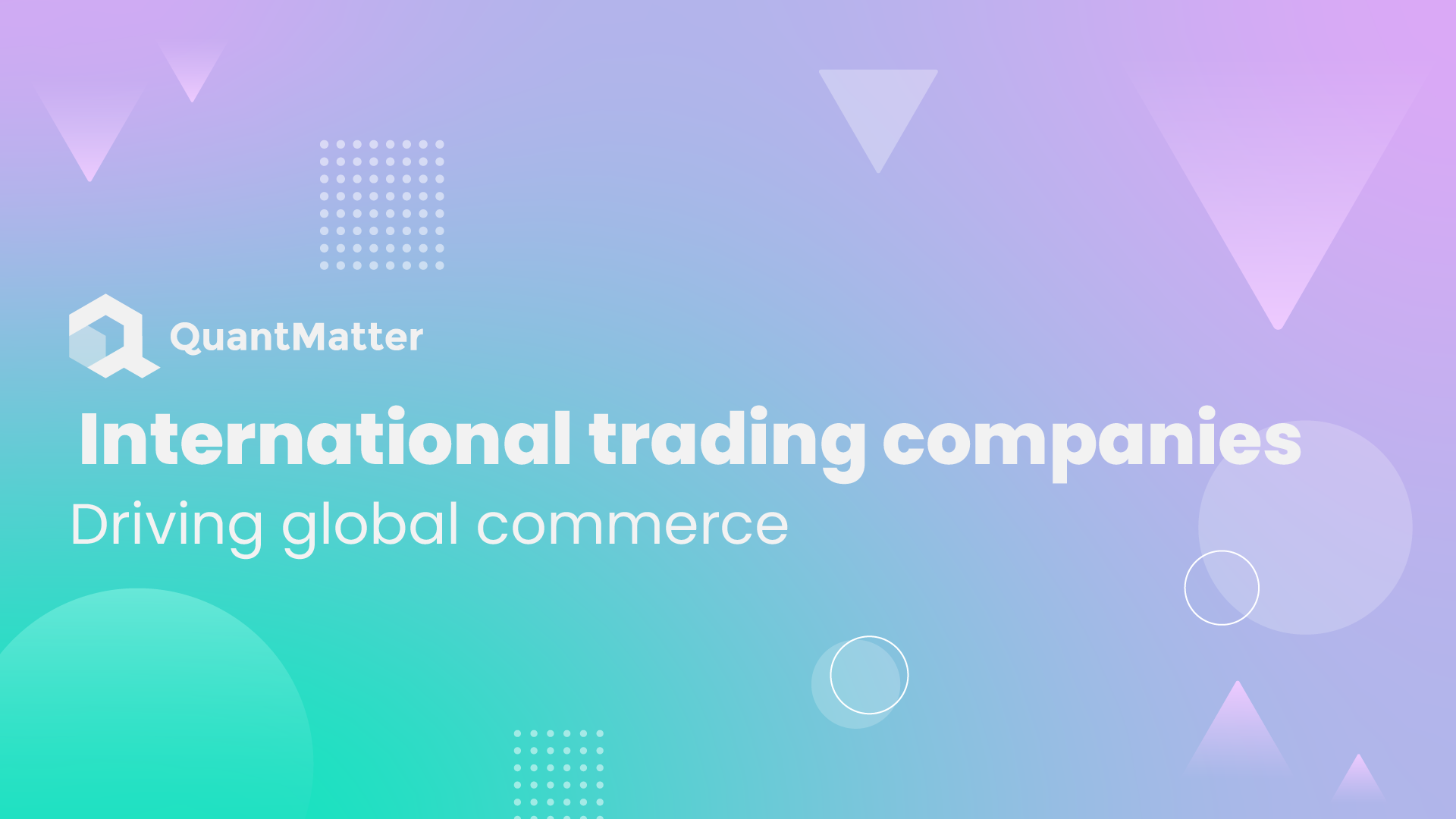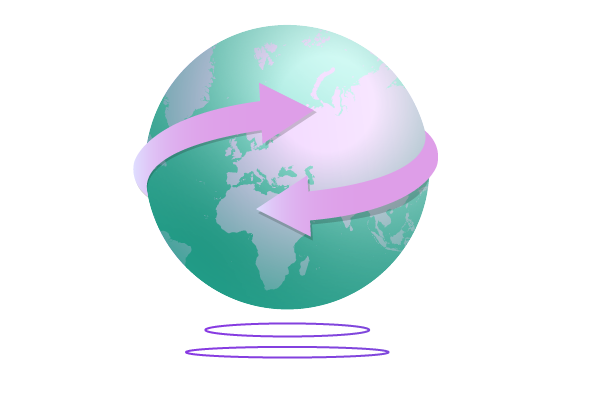
In 2025, the landscape of international trading companies is evolving at a breathtaking pace, becoming more dynamic and interconnected than ever before. These companies are no longer just players in global commerce; they are the architects of a new, more digital and agile economy. As they bridge the gap between emerging markets and established economies, they are transforming the way goods, services, and resources move across borders. Fueled by cutting-edge technologies like artificial intelligence, blockchain, and automation, these trading powerhouses are reshaping supply chains, creating new opportunities for businesses, and responding to the shifting demands of a rapidly changing world.
With sustainability and ethical trade practices taking center stage, many of these companies are driving innovations that not only boost profit margins but also promote positive social impact. As we look ahead to 2025, these top international trading firms are more than just economic giants—they’re at the heart of the global transformation, navigating complex trade regulations, harnessing data insights, and defining the future of commerce on a truly global scale.
What Are International Trading Companies?

International trading companies are pivotal players in the global economy because they operate at the crossroads of international commerce. These organizations specialize in the import and export of goods and services, seamlessly connecting producers and consumers across different countries. Their diverse forms and functions contribute significantly to the facilitation of global trade. Let’s delve deeper into the various types of international trading companies and explore how they navigate the intricate landscape of international commerce.
-
Trading Houses
Trading houses, often referred to as commodity trading firms, are at the forefront of international trade. They specialize in purchasing a wide range of commodities directly from producers, including agricultural products, minerals, and energy resources. These firms play a pivotal role in adding value to the products they trade by optimizing the supply chain, ensuring quality control, and often customizing products to meet the specific demands of various markets.
Also Read: Trading and Investing: Is There a Difference?
Trading houses not only facilitate the movement of goods but also serve as risk managers, utilizing financial instruments to hedge against market volatility. Their global reach and expertise make them essential players in ensuring the efficient flow of commodities across borders.
-
Export Management Companies (EMCs)
EMCs are vital partners for domestic producers looking to expand their footprint in international markets. These companies provide comprehensive support, starting from market research and analysis to logistics, distribution, and marketing.
They tailor their strategies to the unique challenges and opportunities of international trade, helping businesses navigate regulatory complexities, cultural nuances, and competitive landscapes. EMCs act as trusted advisors, empowering domestic producers to seize global opportunities and compete effectively on the international stage.
-
Import/Export Agents
Import/export agents, also known as intermediaries or brokers, offer a flexible and cost-effective approach to international trade. They act as connectors, facilitating transactions between buyers and sellers without taking ownership of the goods themselves.
These agents leverage their expertise in trade regulations, market knowledge, and network of contacts to streamline trade processes. Import/export agents earn commissions or fees for their services, making them an accessible option for businesses looking to enter foreign markets without the need for significant upfront investments.
The global marketplace presents a multitude of challenges for international trading companies. They must navigate a complex web of regulations, ranging from tariffs and customs duties to import-export licenses and trade sanctions. Cultural differences and language barriers can also pose communication challenges, while logistical complexities involve coordinating the efficient movement of goods across vast distances and various modes of transport. Additionally, economic fluctuations, currency exchange rate volatility, and geopolitical tensions can introduce uncertainty into international trade operations.
Despite these challenges, the contributions of international trading companies to the global economy are undeniable. They serve as catalysts for economic growth by promoting international trade, spurring innovation, and creating employment opportunities. Their role in connecting producers and consumers from different corners of the world enhances market access, fosters cultural exchange, and enriches the lives of people worldwide.
International trading companies remain indispensable facilitators of international commerce. Their diverse forms, including trading houses, EMCs, and import/export agents, cater to the unique needs of businesses seeking to expand their global presence. As these companies adapt to evolving market dynamics and navigate the complexities of international trade, they continue to drive economic growth and connectivity on a global scale.
Top 10 Notable International Trading Companies in 2025

The world of international trade is vast and multifaceted, with a multitude of companies making significant contributions to the global economy. Here, we’ll delve further into the profiles of these prominent international trading companies, highlighting their unique roles and impact on international commerce:
1. Cargill, Inc.
Cargill, Inc. is a global conglomerate that has been in operation since 1865. Its extensive presence and influence in international trade make it a formidable player in various sectors, including agriculture, food processing, and financial services. Cargill’s significance lies in its ability to maintain a stable food supply chain on a massive scale.
It accomplishes this by sourcing raw agricultural materials from around the world and delivering processed products to consumers globally. This role positions Cargill as an indispensable entity in the global food and agricultural industry, contributing significantly to food security and sustainability efforts worldwide.
2. The Dow Chemical Company
The Dow Chemical Company, a multinational corporation, plays a crucial role in international trade through the production and distribution of chemicals, plastics, and agricultural products. Dow Chemical’s innovative solutions have a far-reaching impact across diverse industries, from manufacturing to agriculture.
By fostering technological advancements and trade partnerships across borders, Dow Chemical enhances the efficiency and competitiveness of businesses worldwide. Its diverse product portfolio further solidifies its position as a key player in the global trade landscape.
3. Mitsubishi Corporation
Mitsubishi Corporation, founded in 1950, is a renowned Japanese trading powerhouse with interests spanning energy, metals, machinery, and food products. Its versatility in international markets is evident through its involvement in various sectors.
Mitsubishi Corporation’s global presence and diverse business interests make it a key driver of international trade and a significant contributor to economic growth on a global scale. Its long history and expertise position it as a trusted partner in global commerce.
4. Louis Dreyfus Company
Louis Dreyfus Company specializes in agriculture and food processing, making it a pivotal player in global commodity trading. Its activities encompass the entire supply chain, from the production and processing of grains, oilseeds, and sugar to distribution.
By ensuring a steady supply of these essential commodities, Louis Dreyfus plays a vital role in supporting the global food supply chain. This ultimately impacts the food security and well-being of nations worldwide, highlighting its significance in the global trade ecosystem.
5. Trafigura Group
Trafigura Group stands out as a leading international commodity trading and logistics company with operations in numerous countries. Its extensive portfolio includes commodities such as crude oil, metals, minerals, and more.
Trafigura’s profound influence on global trade dynamics is evident through its efficient resource movement across borders and its role in optimizing supply chains. This contribution significantly enhances the stability and growth of the global commodities market, underscoring its importance in international trade.
6. Glencore
Glencore, established in 1974 and headquartered in Switzerland, is a multinational corporation with a strong presence in commodity trading and mining. The company actively participates in trading metals, minerals, energy products, and agricultural goods.
Its strategic role in sourcing, transporting, and marketing essential resources shapes the dynamics of the global commodities market. Glencore’s contributions ensure a consistent flow of vital commodities in the global marketplace, reinforcing its position as a key player in international trade.
7. ADM (Archer Daniels Midland Company)
ADM (Archer Daniels Midland Company) is a major force in food processing and trading, based in the United States. The company deals with various agricultural products, including soybeans, corn, and wheat. ADM plays a crucial role in facilitating the movement of these key commodities, both domestically and internationally. By doing so, it contributes significantly to food security and the growth of the agricultural industry on a global scale.
8. Vitol Group
Vitol Group is one of the world’s largest independent energy trading companies, specializing in oil and petroleum products. Its global presence and extensive history since the 1960s make it a major player in global energy markets and trade. Vitol’s activities in sourcing, transporting, and distributing energy resources play a pivotal role in meeting the world’s energy demands and contributing to global economic stability.
9. Sumitomo Corporation
Sumitomo Corporation, with a history dating back to the 17th century, operates across diverse sectors, including metal products, transportation, and infrastructure. Its extensive experience and global reach position it as a stalwart in international trade. Sumitomo’s role in facilitating the exchange of goods and services across borders promotes economic growth and fosters international cooperation, further solidifying its importance in the global trade landscape.
10. Wilmar International Limited
Wilmar International Limited, based in Singapore, is a major agribusiness group known for being one of the largest palm oil traders globally. Additionally, it deals in various agricultural commodities and consumer goods. Wilmar’s contributions to the agricultural trade landscape include ensuring a steady supply of essential products, such as palm oil, while adhering to sustainability practices. This positive impact on the global trade landscape underscores Wilmar’s significance in international trade.
These ten international trading companies represent the tip of the iceberg in the intricate and dynamic world of global commerce. Their extensive reach, diverse portfolios, and rich histories underscore their significance in shaping international trade patterns, fostering economic growth, and ensuring the smooth flow of goods and services across borders.
Functions of International Trading Companies

International trading companies are multifaceted organizations that go beyond the mere facilitation of trade. Through these comprehensive services, they play a central role in driving global trade, promoting economic growth, and ensuring the efficient flow of goods and services across borders.
-
Market Research
One of the foundational pillars of international trading companies is their commitment to in-depth market research. They go beyond merely facilitating trade transactions; they actively analyze global market trends and dynamics. This involves studying consumer preferences, monitoring shifts in demand and supply, and identifying emerging opportunities and potential risks.
By doing so, these companies provide invaluable insights to their clients, empowering them to make informed decisions in an ever-changing global marketplace. This comprehensive approach to market research ensures that international trading companies remain at the forefront of their industries, driving innovation and adaptability.
-
Logistics and Transportation
The seamless movement of goods across international borders is a complex and critical aspect of international trade. These companies take on the responsibility of managing the logistics and transportation of products. This entails coordinating the storage, packaging, and transportation of goods, not only ensuring they reach their destinations efficiently but also cost-effectively.
Whether it’s choosing the optimal shipping route, optimizing cargo loads, or managing customs and border clearances, international trading companies play a pivotal role in streamlining supply chain operations, reducing transit times, and ultimately enhancing the competitiveness of their clients in the global market.
-
Legal Compliance
Navigating the intricate web of international trade regulations and legal requirements is a paramount concern for international trading companies. They operate in an environment where trade laws, customs regulations, and export-import policies vary significantly from one country to another.
To ensure that their transactions remain above board and adhere to local laws and regulations, these companies maintain specialized legal teams and compliance officers. These experts work diligently to stay up-to-date with evolving trade laws, trade sanctions, and export controls. Their role is not only to ensure that their clients’ transactions comply with all relevant regulations but also to mitigate the risk of legal disputes and penalties that could arise due to non-compliance.
Also Read: Trading Platform Development: Get to Know More!
-
Risk Management
International trading is inherently exposed to a range of risks, including currency fluctuations, political instability, and supply chain disruptions. These companies are well-versed in identifying and managing these risks. They employ sophisticated risk management strategies to safeguard their clients’ interests and investments.
For instance, they may use currency hedging techniques to protect against adverse exchange rate movements. Additionally, they assess the political and economic stability of the countries they operate in and may diversify their supply chains to reduce dependence on a single source. Such proactive risk management measures are vital in maintaining the stability and resilience of international trade operations, even in the face of unforeseen challenges.
-
Financing
Facilitating trade transactions often requires substantial financial resources. International trading companies recognize this challenge and often step in to provide financing options to both buyers and sellers. These financing arrangements can take various forms, including letters of credit, trade credit insurance, or even direct loans.
By offering these financial solutions, international trading companies help bridge the gap between buyers and sellers, facilitating smoother and more secure trade transactions. Moreover, they can leverage their financial expertise and networks to negotiate favorable terms for their clients, optimizing their financial outcomes in international trade.
Conclusion
International trading companies, often considered the unsung heroes of global commerce, serve as the bedrock upon which the modern global economy is built. These entities play a multifaceted role in connecting producers and consumers, transcending geographical boundaries, and facilitating the flow of goods and services across the world’s vast and diverse markets. Their influence extends far beyond mere intermediaries; they are the architects of cross-border trade relationships, shaping the dynamics of international commerce in profound ways.
The challenges these companies encounter are indeed numerous and complex. They navigate trade regulations, customs protocols, and export-import procedures, each varying from one country to another. They grapple with the intricacies of diverse currencies, geopolitical tensions, and fluctuating market conditions that can significantly impact the success of their trade endeavors. Furthermore, the logistics of coordinating the efficient movement of goods on a global scale, from the manufacturer to the end consumer, is a feat that requires meticulous planning and execution.
Disclaimer: The information provided by Quant Matter in this article is intended for general informational purposes and does not reflect the company’s opinion. It is not intended as investment advice or a recommendation. Readers are strongly advised to conduct their own thorough research and consult with a qualified financial advisor before making any financial decisions.

Alifia Berizky
In the world of QuantMatter, I craft stories that make complex ideas clear. I simplify the blend of data science, machine learning, and crypto trading, showcasing how advanced tech and quantitative models analyze data for informed trading choices. Join me in exploring the realm of quantitative trading, where my narratives make intricate concepts easy to grasp
- This author does not have any more posts.
